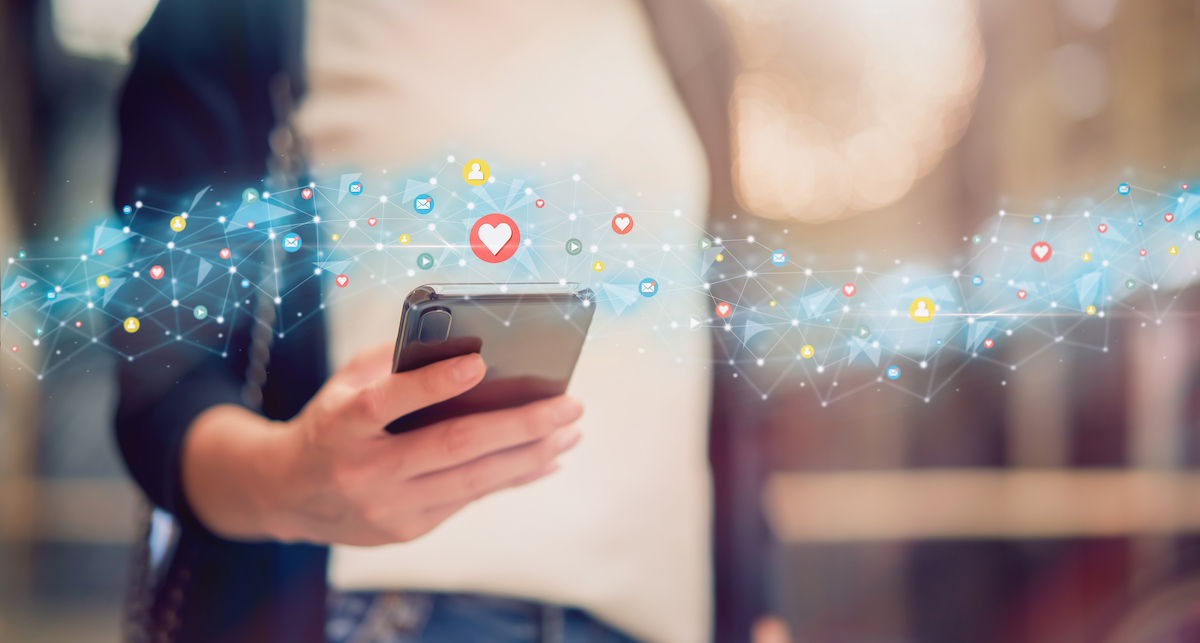Making Connections in a Digital Age: Are We Closer or More Disconnected?
Jacqueline Wong explores whether we can really develop meaningful connections in a world consumed by social media.

image credit: istock
In an age where most of us live with a phone in hand, the term “chronically online” feels more fitting than ever. This phenomenon indicates how social media increasingly consumes our lives. From waking up to checking our phones to endlessly scrolling through feeds, staying online has become more than a habit, and almost like second nature.
Social media is hugely important in modern life, bringing news, updates, and interactions into one spot. However, it raises some questions: Is being constantly online equal to connection? Does it truly bring us closer together, or does it leave us more disconnected than ever?
Rethinking Connection in the Digital Age
Connection lies at the heart of human relationships. It goes beyond shared memes or tagged photos. It is about being understood, valued, and emotionally satisfied. However, social media came into play and put a significant blur between connection and engagement.
On social media platforms like Instagram or TikTok, connections often get boiled down to numbers – followers, ‘likes’, and comments. These metrics might offer a quick sense of validation, but they rarely provide the emotional depth that builds lasting bonds. For example, a birthday message on Facebook or Instagram can feel thoughtful, yet it’s no replacement for a heartfelt phone call or an in-person celebration.
This isn’t to say social media doesn’t have its advantages. It’s a powerful tool for us to keep updated with what’s happening in the lives of loved ones and those living far away. It allows us to feel connected to people we may never meet in person. But while these interactions are convenient, they rarely substitute for live conversations and shared experiences.
The Paradox of Loneliness
Why do so many people feel lonelier, despite being more “connected” than ever?
Social media creates a mere feeling of connection, whereby people are “together” in name but isolated in experience.
One reason is the culture of comparison. Social media platforms encourage users to showcase their best selves, from carefully curated photos to highlight reels of life’s best times. All these supposedly perfect snapshots of other people’s lives can make individuals feel worse about their own and give them FOMO, or the Fear of Missing Out. This can deepen feelings of disconnection, as we compare our behind-the-scenes reality to someone else’s polished presentation.
Moreover, social media interactions are often passive. Scrolling through a friend’s photos or ‘liking’ their posts doesn’t create the same emotional impact as catching up in person. The passivity can lead feelings of emptiness, where people feel seen but not truly understood.
Imagine you are going through a tough time, you post something vague on social media, like a quote or an image that hints at your mood, and your friends respond with reactions such as a heart emoji. While it shows that people are noticing, they often lack the thoroughness to make you feel truly supported.
Now compare this to a friend who notices your post and reaches out privately to ask how you’re really doing. They might call you or invite you to talk, offering a safe space to share your feelings. That personal connection, rather than the quick online acknowledgment, is what helps you feel seen, heard, and understood.
Social Media and Emotional Distance
The convenience of social media can work against us too. Instead of reaching out to people, many settle for quick and surface-level contacts. Such signals might feel like support – a thumbs-up for a photo or a short comment, but these gestures create little emotional connection.
Even when social media facilitates communication, the quality of it is often gone. Interactions via text or DMs just are not the same as person-to-person. Key emotive indicators such as tone and body language are displayed through silence.
However, social media isn’t inherently bad. It can be a bridge, helping us maintain connections that may fall by the wayside. But to nurture meaningful relationships, we have to use it intentionally – reaching out for genuine conversations, rather than merely scrolling through updates.
The Path to Genuine Connection
So, how can we reclaim connection in a world dominated by screens?
Firstly, it’s crucial to redefine our relationship with social media, recognise its limits and focus on its strengths. Try to use it as a tool to initiate real-world interactions, rather than a substitute for them.
Also, try making your online interactions more substantive and a little deeper. Instead of simply liking a friend’s photo, send them a message to ask how they’re doing. When you catch yourself comparing to others, remind yourself that social media rarely shows the full picture of other people’s lives.
Finally, prioritise offline connections. Spend time with loved ones clear of notifications. Do things together that require the presence of your whole self. It’s in these moments, rather than the moments you snap for a story, that quality bonds are formed.
As we attempt to navigate this digital era, it’s worth asking ourselves: are we truly connecting, or simply performing our connection? Social media offers countless opportunities to interact, but it’s up to us to decide how we use them.
Genuine connection takes effort, openness, and time. By stepping back from the noise of the digital world, we can rediscover what it means to truly connect, with others and with ourselves.
Words by Jacqueline Wong
